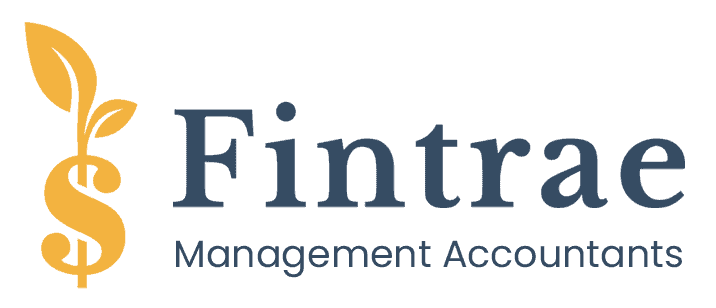A bookkeeper helps businesses keep track of daily financial transactions like sales, expenses, and payments. They organize receipts, update accounting software, and help maintain accurate records so business owners can make better decisions.
For small business owners who don’t have much time or expertise in managing finances, hiring a bookkeeper can reduce stress and prevent costly mistakes. While some business owners might try to handle bookkeeping on their own using spreadsheets or apps, professionals bring consistency and save time. If you want to focus more on growing your business rather than crunching numbers, considering a bookkeeper might be helpful.
What Does a Bookkeeper Do for a Small Business?
A bookkeeper plays an essential role in keeping your small business’s financial records accurate and current. They handle daily transactions like sales, expenses, and payments, making sure everything is recorded properly and on time. This keeps your financial data reliable and easy to access when needed.

A bookkeeper plays an essential role in keeping your small business’s financial records accurate and current. They handle daily transactions like sales, expenses, and payments, making sure everything is recorded properly and on time. This keeps your financial data reliable and easy to access when needed.
Understanding the question, what does a bookkeeper do for a small business? is crucial for any entrepreneur looking to manage their finances effectively.
By maintaining detailed ledgers, bookkeepers help you monitor income and spending, which is key to understanding your cash flow. They also manage invoicing and billing, so clients are charged on schedule and payments are tracked correctly.
Payroll data and employee expenses are part of their job, too. They handle the entry and tracking, making sure your team is paid properly and records remain clean. With frequent updates, your books stay current, giving you a clear view of your financial position.
Bookkeepers also create summaries of your data to give you quick insights into your business’s health. They work closely with accountants to prepare organized records for tax filings and audits, simplifying those often stressful processes.
Another benefit: they catch issues early. If a payment doesn’t match an invoice, they’ll flag it so you can sort it out before it becomes a bigger problem. In short, bookkeepers keep the financial side of your business steady so you can focus on growing it.
Organize Financial Records and Transactions
Bookkeepers help keep small business’s financial records neat and easy to navigate. They start by categorizing expenses and income into clear accounts, which helps in tracking where money is coming from and going to. Using accounting software, bookkeepers keep all records organized digitally, making it simple to update and access information.
In addition to this, they maintain both digital and physical copies of important documents like invoices and receipts, ensuring nothing gets lost. A consistent filing system is put in place so documents can be retrieved quickly whenever needed.
Preparing Financial Reports to Track Your Business Health
A reliable bookkeeper prepares financial reports that help you keep a close eye on your business health. They regularly generate profit and loss statements to show how much money your business is making or losing over a set period of time. They create a balance sheet to give a snapshot of your assets and liabilities, showing what your business owns and owes. Also, they prepare cash flow statements to monitor liquidity, ensuring you have enough cash available to cover day-to-day expenses.
Bookkeepers lay the groundwork to be able to derive key financial metrics that support better decision-making and identify potential areas where you can save costs.
Managing Accounts Receivable and Payable Efficiently
A bookkeeper can keep tabs on incoming and outgoing payments so your business runs smoothly. They track when customer invoices are due and send reminders if payments fall behind. This keeps cash flowing and relationships intact.
On the other side, they organize supplier bills and prioritize outgoing payments to avoid late fees and protect your reputation with vendors. They match every payment to the right invoice, ensuring your books reflect reality.
Clear communication is part of the job. Bookkeepers stay in touch with vendors and customers to clarify payment details when needed. Many also use automated tools to streamline invoicing and payment tracking, cutting down on errors and saving time.
They regularly review aging reports to catch payment issues early and prepare summaries of outstanding receivables and payables. This helps you stay informed and plan ahead.
| Task | Description |
| Track customer invoices and payment due dates | Monitor all invoices sent to customers and their respective payment deadlines |
| Send timely reminders for overdue payments | Notify customers promptly about any late payments to ensure cash flow |
| Record supplier bills and payment schedules | Keep detailed records of bills from suppliers and their payment timelines |
| Prioritize payments to avoid late fees | Organize outgoing payments to manage cash and avoid penalties |
| Match payments received to outstanding invoices | Ensure incoming payments are accurately applied to the correct invoices |
| Maintain vendor relationships through clear communication | Regularly update and communicate with vendors regarding payments |
| Automate invoicing and payment processing where possible | Use software tools to streamline billing and payments |
| Monitor aging reports to spot collection issues | Review reports showing overdue receivables to manage collections |
| Prepare reports on outstanding receivables and payables | Generate summaries for review of pending customer and vendor balances |
| Coordinate with sales and purchasing teams for accuracy | Work with other departments to keep records precise and up to date |
Reconciling Bank and Credit Card Accounts with Accuracy

Each month, a bookkeeper compares your bank and credit card statements with your internal records to make sure everything matches. This process helps catch missing transactions, duplicate entries, or bank errors before they cause problems.
They match deposits, withdrawals, and fees to your books, flagging anything that doesn’t align. Credit card statements get the same close attention to spot unauthorized charges or unrecorded purchases early.
Using reconciliation software helps speed things up and reduce mistakes. All corrections are clearly documented to keep your records clean and transparent.
Bookkeepers also track multiple accounts separately and maintain proper audit trails. They report reconciliation updates regularly, so you always know where your finances stand.
Support Your Tax Preparation Process
Bookkeepers make tax season easier by keeping your financial records organized all year. They track deductible expenses, organize income and expense summaries, and make sure sales tax is calculated correctly.
they ensure accurate payroll records, which are critical for employee tax reporting. When it’s time to estimate tax payments, bookkeepers assist with calculations so you stay on target.
They coordinate with accountants, supplying the clean data needed for smooth filing. By staying on top of deadlines and compliance, they help you avoid penalties or missed opportunities.
If tax laws change, your bookkeeper adjusts your records to to stay in compliance. This proactive approach keeps your business ready for audits and eligible for deductions.
How Virtual Bookkeeping Services Can Save You Time and Money

Virtual bookkeeping services let small businesses access professional financial management without the cost of hiring full-time staff. These services offer flexible plans tailored to your specific needs and budget, so you only pay for what you actually use. Because they use cloud-based software, you get real-time access to your financial data anytime, anywhere, making it easier to stay on top of your business health.
Virtual bookkeeping also reduces overhead costs since you don’t need extra office space or equipment. Setting up these services is usually quick and integrates smoothly with your existing systems. As your business grows, virtual bookkeeping can scale with you, offering more support as needed. You’ll receive regular financial updates and reports remotely, helping you make informed decisions without the hassle of managing books yourself.
Plus, your sensitive financial information is handled securely, giving you peace of mind. Many virtual bookkeepers also provide expert help with tax preparation and compliance, so you avoid costly mistakes. By outsourcing these tasks, you free up valuable time to focus on growing your business and serving your customers.
Book a Free Financial Consult with Fintrae Today
Scheduling a no-obligation consultation with Fintrae is a simple first step toward gaining better control over your small business finances. Whether you book online or by phone, you can openly discuss your current bookkeeping challenges and goals with an expert. This free session lets you explore customized bookkeeping solutions tailored to fit your unique needs.
During the consultation, you’ll get a clear overview of pricing and service packages, so there are no surprises down the road. Fintrae also offers valuable advice on improving your financial processes, including tips on optimizing cash flow and managing expenses efficiently. You’ll learn about cloud accounting tools Fintrae uses and how these can integrate seamlessly with your existing systems.
The consultation covers how Fintrae International supports tax preparation, helping you stay organized and ready for tax season. Plus, you can ask any questions about data security and compliance, ensuring your sensitive information is protected. Taking advantage of this free consultation is a practical way to move toward clearer financial insight and stronger control over your business finances.
Frequently Asked Questions
1. How does a bookkeeper help keep my business finances organized?
A bookkeeper tracks all your income and expenses, records transactions, and keeps important financial documents in order. This helps you see exactly where your money is going and ensures everything is accurate for your business records.
2. What financial reports can a bookkeeper provide to help me understand my business performance?
Bookkeepers can prepare reports like profit and loss statements, balance sheets, and cash flow summaries. These reports give you a clear picture of your business’s financial health so you can make informed decisions.
3. Can a bookkeeper assist with preparing for tax season and avoiding mistakes?
Yes, a bookkeeper organizes your financial data throughout the year, making it easier to file accurate tax returns. They ensure your records are complete, which helps reduce errors and keeps you ready for tax deadlines.
4. How does having a bookkeeper save me time compared to doing my own bookkeeping?
Bookkeepers are trained to quickly and accurately handle financial tasks, which frees up your time to focus on running your business. They also help prevent potentially costly mistakes that could take even longer for you to fix later.
5. In what ways does a bookkeeper support small business growth and financial planning?
By maintaining accurate records and providing regular financial insights, a bookkeeper helps you spot trends, manage budgets, and plan for future expenses. This support makes it easier to set realistic goals and make strategic growth decisions.




